New Bedford becoming hub for emerging “blue tech” industry
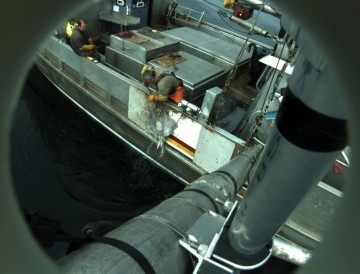 On a March afternoon at The Black Whale restaurant on New Bedford’s waterfront, steps away from docked fishing boats, Chris Rezendes signaled to waitstaff as his party gathered for lunch. He was going to need more tables. Guests included Ed Anthes-Washburn, port director for the city’s Harbor Development Commission; Kevin Stokesbury, chairman of the Department of Fisheries Oceanography at UMass Dartmouth’s School for Marine Science & Technology (SMAST); John Haran, manager of fishery Sector 13 and newly elected member of Dartmouth’s Select Board; and Rezendes, founder of INEX Advisors and an affiliated Internet connectivity company, IoT Impact LABS, based in New Bedford. Read the rest here 13:59:01
On a March afternoon at The Black Whale restaurant on New Bedford’s waterfront, steps away from docked fishing boats, Chris Rezendes signaled to waitstaff as his party gathered for lunch. He was going to need more tables. Guests included Ed Anthes-Washburn, port director for the city’s Harbor Development Commission; Kevin Stokesbury, chairman of the Department of Fisheries Oceanography at UMass Dartmouth’s School for Marine Science & Technology (SMAST); John Haran, manager of fishery Sector 13 and newly elected member of Dartmouth’s Select Board; and Rezendes, founder of INEX Advisors and an affiliated Internet connectivity company, IoT Impact LABS, based in New Bedford. Read the rest here 13:59:01


































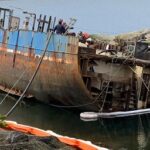


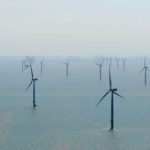
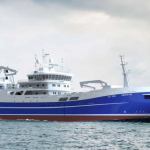
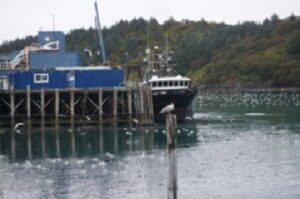
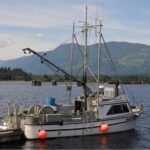


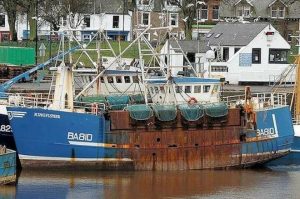
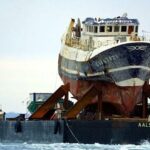



Oh No, EDF! Not the “Tragedy of the Commons” again? Is that faulty idea being dug up and used here to prescribe and sell these e-gizmos? I guess if you accept the flawed thesis in the tragedy of the commons, essentially that communities out of greed and/or stupidity will deplete their own resources into oblivion, then the electronic ankle-bracelet gadgets to “observe” and/or “monitor” all that goes on during a commercial fishing trip would make perfect sense.
But wait a minute wasn’t that cynical perspective of Hardin’s “commons tragedy” the marketing ploy and set-up line gimmick that EDF used back in 2009 and 2010 when they pumped tens of millions of dollars into pushing catch shares or the privatization and commoditization of the “commonly” owned ocean fishery resource? Catch shares privatization will cure the commons tragedy, make everyone happy, safe, and profitable—and save all the fish! However what catch shares was able to accomplish was to create a bit of an common tragedy of its own—devastating more than half of the independent coastal fishing operations and their communities.
It’s hard to imagine (as the tragedy of the commons used here would imply) an entire community of fishermen being complicit in the devastation of a resource that they depend on for their livelihood. The “tragedy” is actually in the catch shares privatization and consolidation. It’s pretty clear that one individual or a handful of “chief mogul administrators” can certainly choose profits over quality, safety, and responsible stewardship, both of their vertically integrated companies as well as the health of the resource. That lack of business integrity is a function of “private ownership” not the cooperative use of a “commons” or natural ocean resource held in public trust.
But the tired old threadbare talking point of the “free-market environmentalists”, their “Tragedy of the Commons” (which ignores the possibility of intelligent and effective co-management and regulation), is being hauled out again and used as the basis for the “Guilty ’till Proven Innocent” greedy fishermen being the subject of electronic policing.
And, no sorry EDF, the “huge debate over the status of the fish stocks” is not whether there are any fish left in the ocean. The important debate is whether NOAA Fisheries can drop their defensive stance long enough to let in some fresh stock population data from the cooperative research voyages of the U. Mass. School of Marine Science and Technology or SMAST. These are voyages with scientists and their instruments sailing on fishing vessels with captains that know how to find fish (what a radical idea, huh?). SMAST research is providing vetted empirical video evidence that there are exponentially more fish in our waters than NOAA’s assessments claim.
SMAST’s funding proposal for this year’s research has been rejected by a NOAA Research Set Aside grant approving panel.